
George Meredith was an English novelist and poet of the Victorian era. At first, his focus was poetry, influenced by John Keats among others, but Meredith gradually established a reputation as a novelist. The Ordeal of Richard Feverel (1859) briefly scandalised Victorian literary circles. Of his later novels, the most enduring is The Egoist (1879), though in his lifetime his greatest success was Diana of the Crossways (1885). His novels were innovative in their attention to characters' psychology, and also portrayed social change. His style, in both poetry and prose, was noted for its syntactic complexity; Oscar Wilde likened it to "chaos illumined by brilliant flashes of lightning". Meredith was an encourager of other novelists, as well as an influence on them; among those to benefit were Robert Louis Stevenson and George Gissing. Meredith was nominated for the Nobel Prize in Literature seven times.
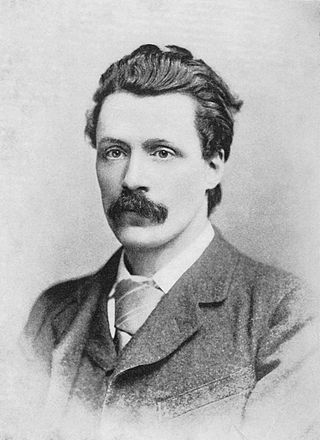
George Robert Gissing was an English novelist, who published 23 novels between 1880 and 1903. In the 1890s he was considered one of the three greatest novelists in England, and by the 1940s he had been recognised as a literary genius. Gissing's best-known works have reappeared in modern editions. They include The Nether World (1889), New Grub Street (1891) and The Odd Women (1893). He retains a small but devoted group of followers.
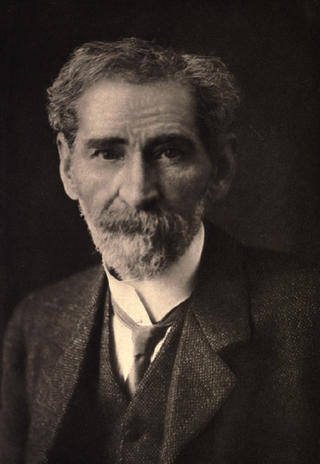
William Henry Hudson, known in Argentina as Guillermo Enrique Hudson, was an Anglo-Argentine author, naturalist and ornithologist.
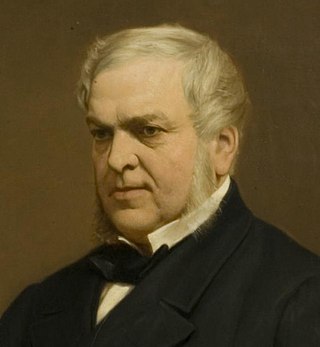
John Forster was a Victorian English biographer and literary critic.
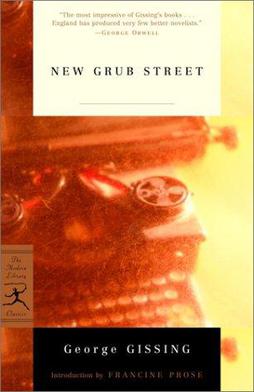
New Grub Street is a British novel by George Gissing published in 1891, which is set in the literary and journalistic circles of 1880s London. The story deals with the literary world that Gissing himself had experienced. Its title refers to the London street, Grub Street, which in the 18th century became synonymous with hack literature, although by Gissing's time, Grub Street itself no longer existed. Gissing revised and shortened the novel for a French edition of 1901.

Morley Charles Roberts was an English novelist and short story writer, best known for The Private Life of Henry Maitland.
The Fruitful Vine is a 1921 British silent drama film directed by Maurice Elvey and starring Basil Rathbone, Valia and Irene Rooke. From the silent era, probably the most notable thing about the film was an early appearance of British actor Rathbone, who was later to become famous for his portrayal of Sherlock Holmes. It is an adaptation of the 1911 novel The Fruitful Vine by Robert Hichens.

The Nether World (1889) is a novel written by the English author George Gissing. The plot concerns several poor families living in the slums of 19th-century London. Rich in naturalistic detail, the novel concentrates on the individual problems and hardships which result from the typical shortages experienced by the lower classes—want of money, employment and decent living conditions. The Nether World is pessimistic and concerns exclusively the lives of poor people: there is no juxtaposition with the world of the rich.

Robert Bownas Mackie was an English corn merchant and Liberal Party politician who sat in the House of Commons from 1880 to 1885.

The Odd Women is an 1893 novel by the English novelist George Gissing. Its themes are the role of women in society, marriage, morals and the early feminist movement.
Eve's Ransom is a novel by George Gissing, first published in 1895 as a serialisation in the Illustrated London News. It features the story of a mechanical draughtsman named Maurice Hilliard, who comes into some money, which enables him to live without working. As part of his resulting travels, he meets and falls in love with Eve Madeley, a book keeper.
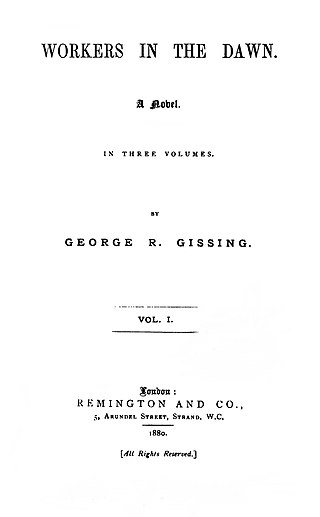
Workers in the Dawn is a novel by George Gissing, which was originally published in three volumes in 1880. It was the first of Gissing's published novels, although he had been working on another prior to this. The work focuses on the unhappy marriage of Arthur Golding, a rising artist from a poor background, and Carrie Mitchell, a prostitute. This plot was partly based on Gissing's negative experiences of marriage to his first wife. It also was designed to serve the function of political polemic, highlighting social issues that Gissing felt strongly about. Reviews of the novel generally recognised some potential in the author, but were critical of Workers in the Dawn. After reading the first known published review in the Athenaeum, Gissing was driven to describe critics as "unprincipled vagabonds".

Demos: A Story of English Socialism is a novel by the English author George Gissing. It is a story of the moral and intellectual corruption of a working-class Socialist who inherits a fortune. It was written between late 1885 and March 1886 and first published in April 1886 by Smith, Elder & Co.

The Unclassed is a novel by the English author George Gissing. It was written during 1883 but revised, at the publisher's insistence, in February 1884 and shortly before publication.
The Gissing family of Great Britain included several noted writers, Olympic competitors, and teachers.

The Private Papers of Henry Ryecroft is a semi-fictional autobiographical work by George Gissing in which the author casts himself as the editor of the diary of a deceased acquaintance, selecting essays for posthumous publication. Observing "how suitable many of the reflections were to the month with which they were dated", he explains that he "hit upon the thought of dividing the little book into four chapters, named after the seasons".
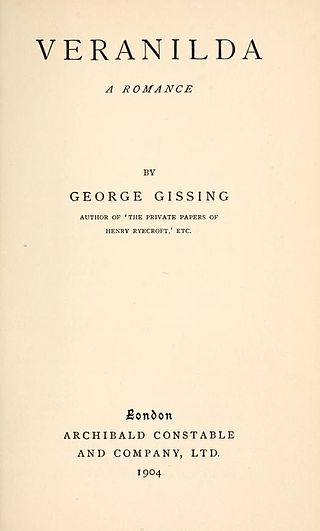
Veranilda: A Romance is a posthumous novel by English author George Gissing. The book was left incomplete at the time of Gissing's death and it was first published in 1904 by Archibald Constable and Company.

In the Year of Jubilee is the thirteenth novel by English author George Gissing. First published in 1894.
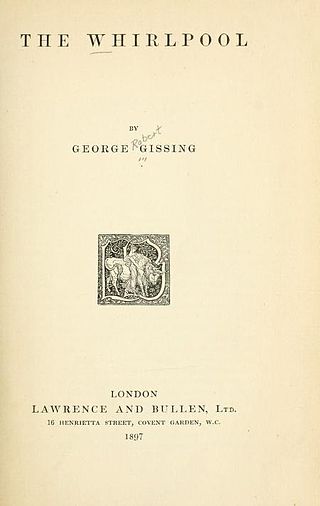
The Whirlpool is a novel by English author George Gissing, first published in 1897.
















